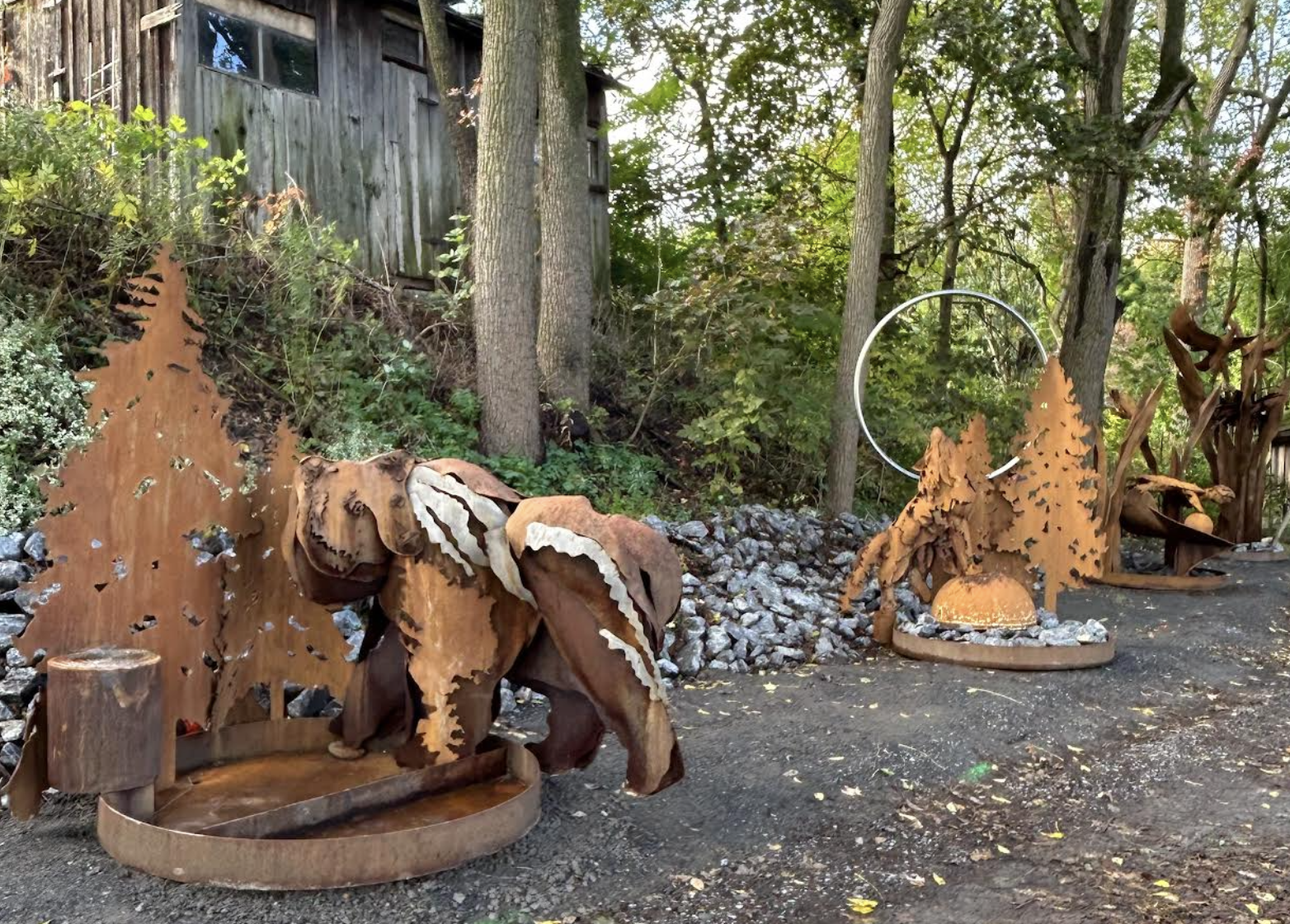
- Details
- By Native News Online Staff
The Cayuga Nation has commissioned a series of sculptures and signage to be installed along the Frank J. Ludovico Sculpture Trail in Seneca Falls, NY. This scenic walking trail, situated on the southern bank of the Seneca River, was originally a towpath for the Cayuga-Seneca Canal and a rail bed for the Lehigh Valley Railroad.
The trail was founded in 1999 by Wilhelmina Pusmucans, who moved to Seneca Falls in 1991. Driven by her passion for the arts and a vision for a dedicated space to celebrate sculpture, she transformed her dream into a reality. The 0.9-mile trail offers a beautiful path for hiking and biking while providing artists with a platform to create and display works that address both historical and contemporary social issues.
To represent the Nation’s five clans—snipe, bear, wolf, turtle, and heron—the Cayuga Nation commissioned local artist Sam Castner, owner of IronVine Studios, to create five distinctive metal sculptures. These artworks, along with accompanying signage for all sculptures along the trail, reflect the Nation's commitment to honoring the trail's legacy and showcasing local artists in a region rich in cultural heritage.
On the morning of October 16, the sculptures were installed by Castner, with several members of the Cayuga Nation in attendance. Signage will be added soon, pending weather conditions. The trail remains open year-round for walkers and bikers.
More Stories Like This
Native News Weekly (August 25, 2024): D.C. BriefsUS Presidents in Their Own Words Concerning American Indians
Federal Judge Orders ICE to Halt Use of Pepper Spray, Arrests of Peaceful Protesters in Twin Cities
Tunica-Biloxi Cultural Leader John D. Barbry Walks On
Next on Native Bidaské: Federal ICE Activity in Minneapolis: Ruth Buffalo’s Perspective
Help us defend tribal sovereignty.
At Native News Online, our mission is rooted in telling the stories that strengthen sovereignty and uplift Indigenous voices — not just at year’s end, but every single day.
Because of your generosity last year, we were able to keep our reporters on the ground in tribal communities, at national gatherings and in the halls of Congress — covering the issues that matter most to Indian Country: sovereignty, culture, education, health and economic opportunity.
That support sustained us through a tough year in 2025. Now, as we look to the year ahead, we need your help right now to ensure warrior journalism remains strong — reporting that defends tribal sovereignty, amplifies Native truth, and holds power accountable.
 The stakes couldn't be higher. Your support keeps Native voices heard, Native stories told and Native sovereignty defended.
The stakes couldn't be higher. Your support keeps Native voices heard, Native stories told and Native sovereignty defended.
Stand with Warrior Journalism today.
Levi Rickert (Potawatomi), Editor & Publisher


